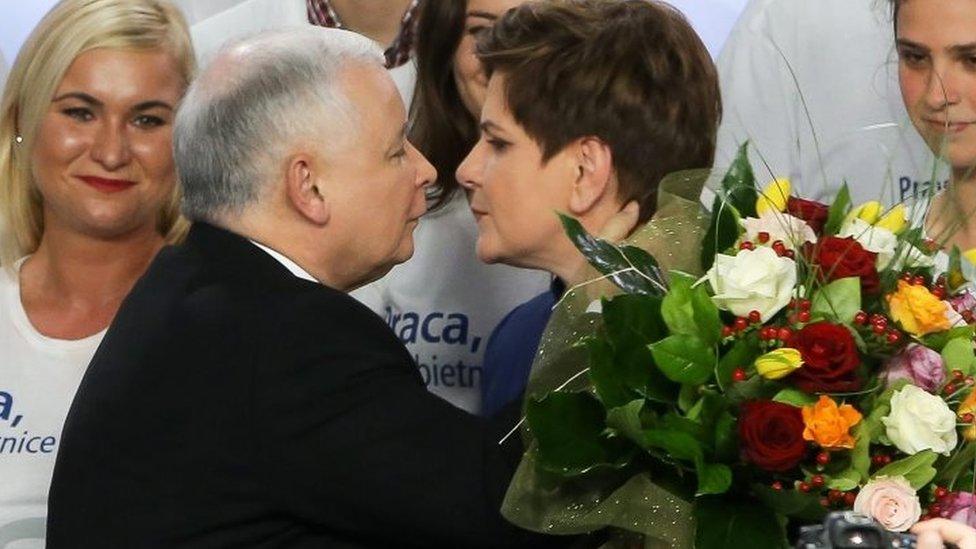Polish media laws: Nationwide protests are staged
- Published
Adam Easton reports: Protesters outside the public TV company in Warsaw chanted "freedom of speech"
Protests have take place across Poland against new laws which demonstrators say gives the newly-elected government power to restrict media freedoms.
Several thousand protested outside the main public TV station in Warsaw.
The new laws give the government power to appoint heads of public TV and radio, as well as the civil service.
European media watchdogs and the EU have condemned the move. But the government says some of Poland's state-controlled bodies need reform.
"Free media" protests were held in the cities of Poznan, Wrocław and Krakow, Radio Poland reported., external
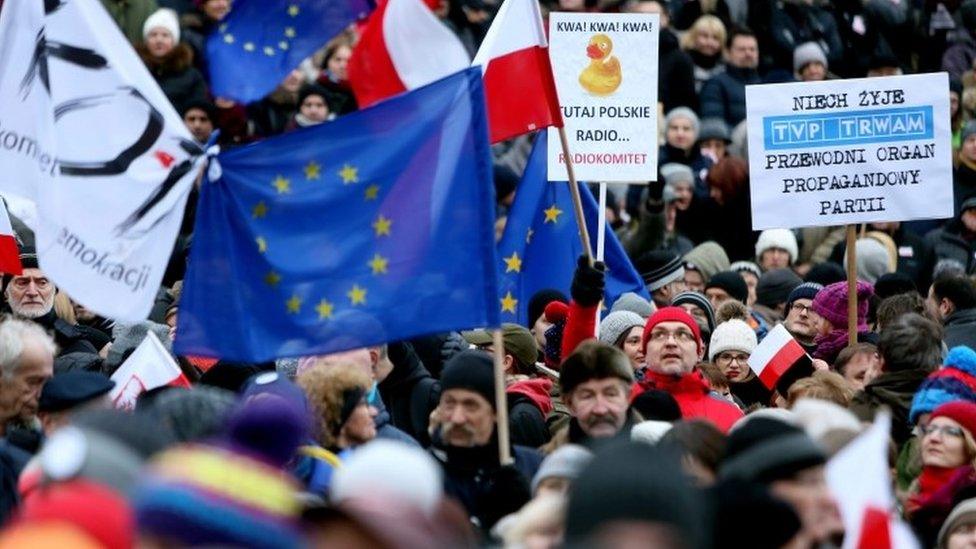
The protesters argue that freedom of speech in Poland is under threat
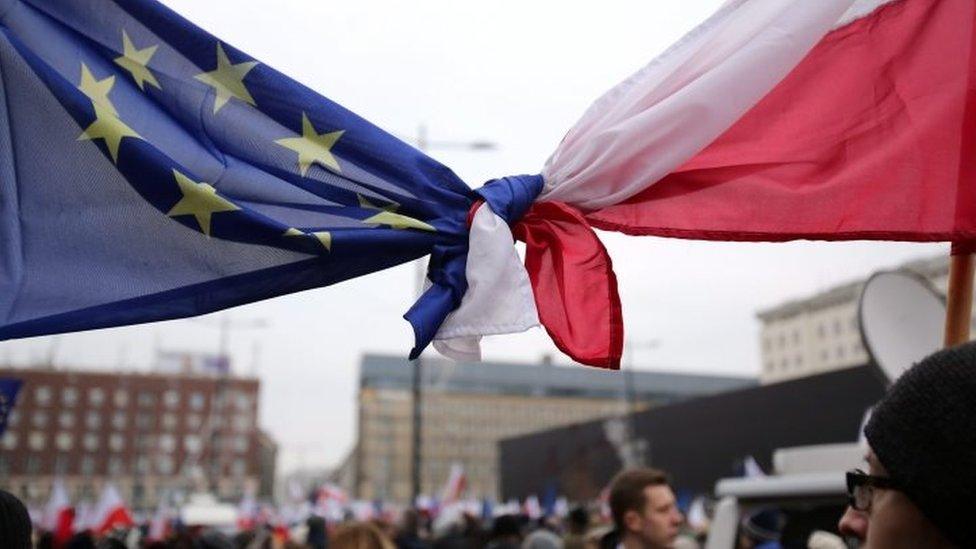
The EU Commission has warned that Poland may be jeopardising EU values by introducing the new laws and could face punitive measures
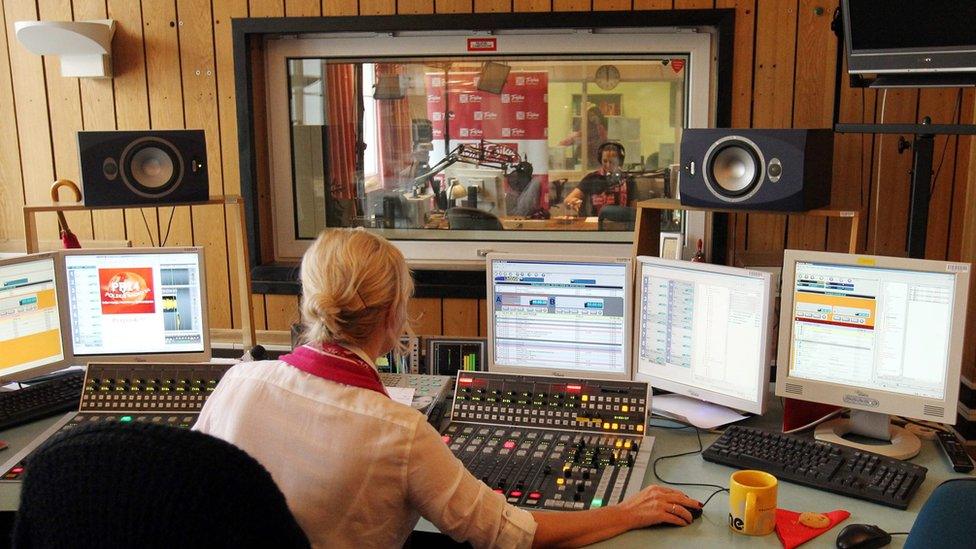
The new laws give the government power to appoint heads of public TV and radio
"We want to express our solidarity with the independent media and our opposition to the attack being currently being carried out against it," the station quoted Mateusz Kijowski - head of the newly-created Committee for the Defence of Democracy - as saying.
The committee also opposes government changes to the constitutional court, which it says undermine the court's ability to deliver rulings on legislation.
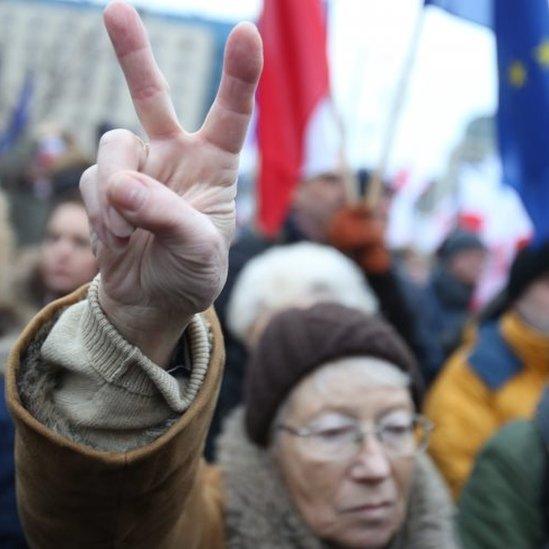
Demonstrators are also upset over government moves to reform Poland's constitutional court
The government's media reforms give the treasury minister the power to hire and fire broadcasting chiefs - a role currently in the hands of a media supervisory committee.
On Friday it dismissed state media management teams and installed replacements.
The EU Commission has warned that Poland may be jeopardising EU values by introducing the new laws and could face punitive measures. It will hold a debate on the reforms on 13 January.
Polish presidential spokeswoman Malgorzata Sadurska said earlier this week that President Andrzej Duda signed the laws because he wanted the state media to be "impartial, objective and reliable".
The Eurosceptic Law and Justice Party (PiS) won a clear majority in October elections and argues that journalists on public service channels are biased against it in their coverage.
Most Poles tune in to the public TVP channels, as well as public radio - which includes many regional stations.
Correspondents say that incoming governments in Poland tend to put their own people in to run large state companies, institutions, and the public media - but the PiS has gone faster and further this time.
- Published7 January 2016
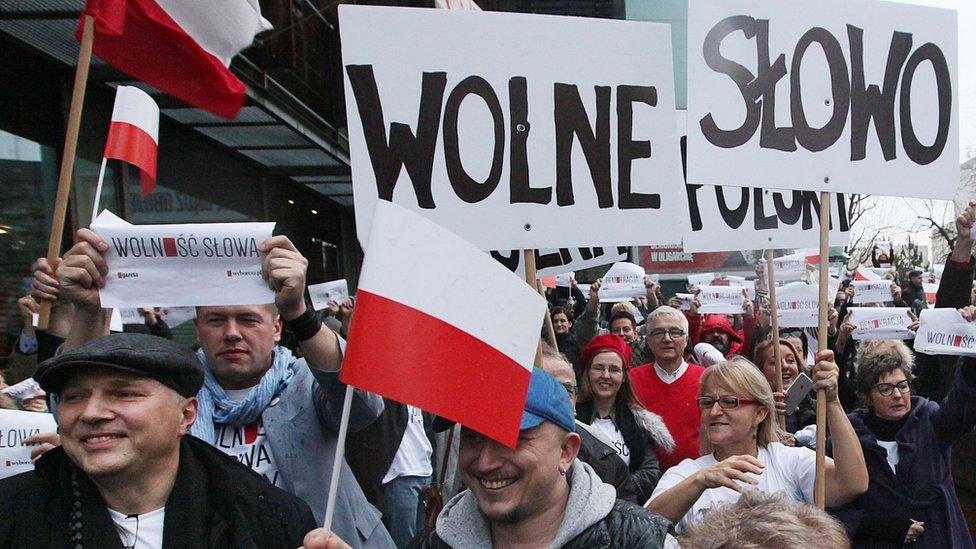
- Published3 January 2016
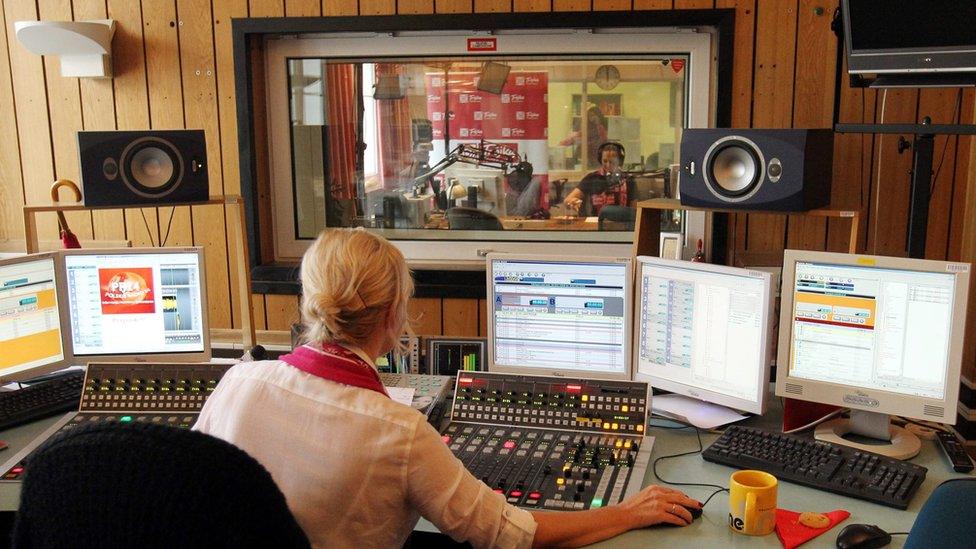
- Published30 December 2015
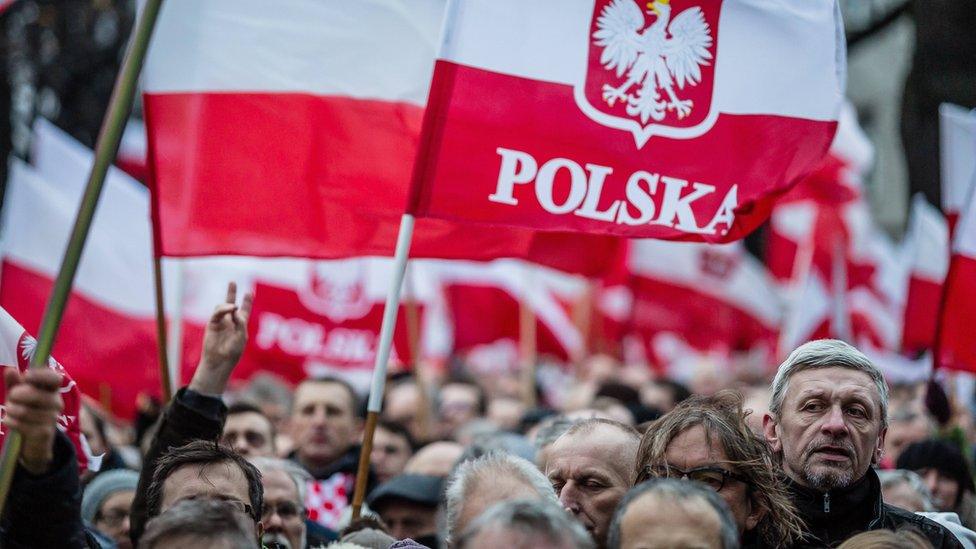
- Published28 December 2015
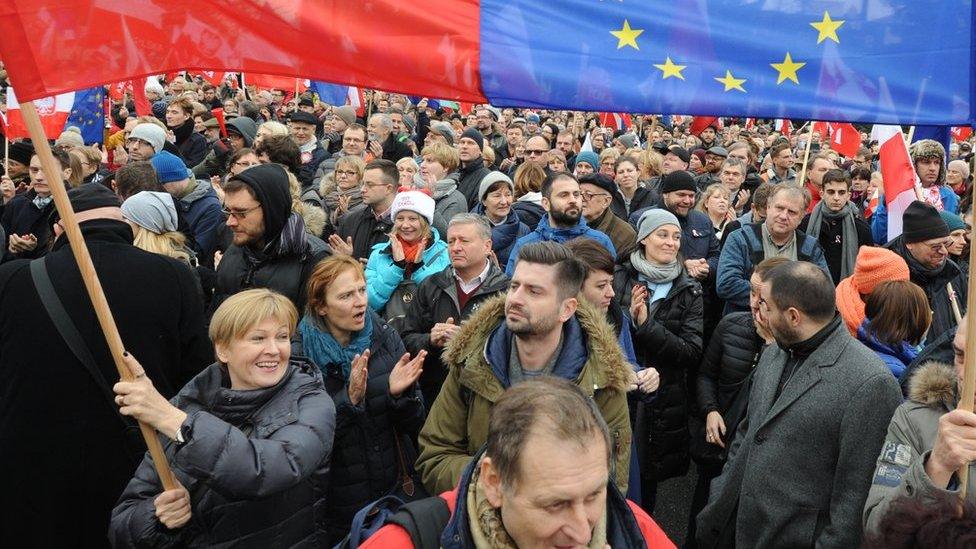
- Published26 October 2015
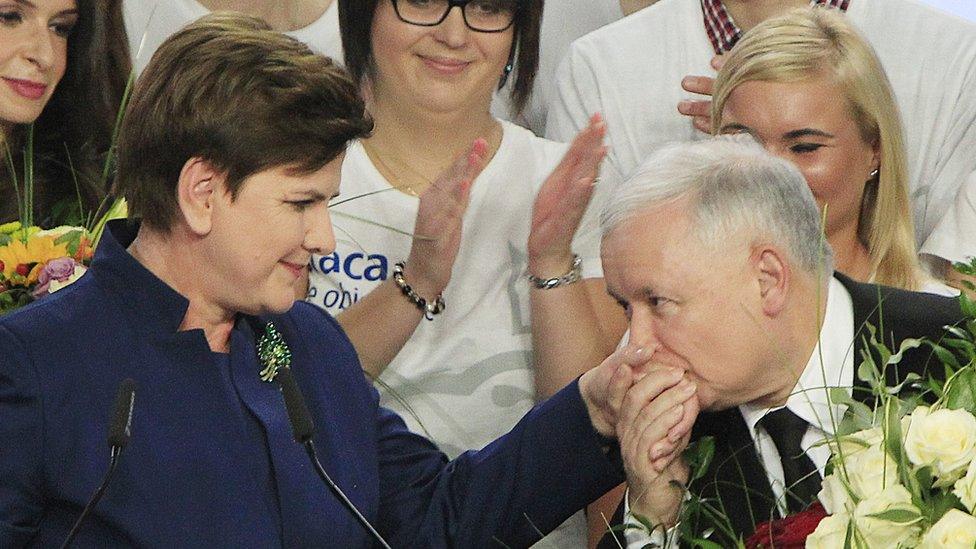
- Published28 March 2023
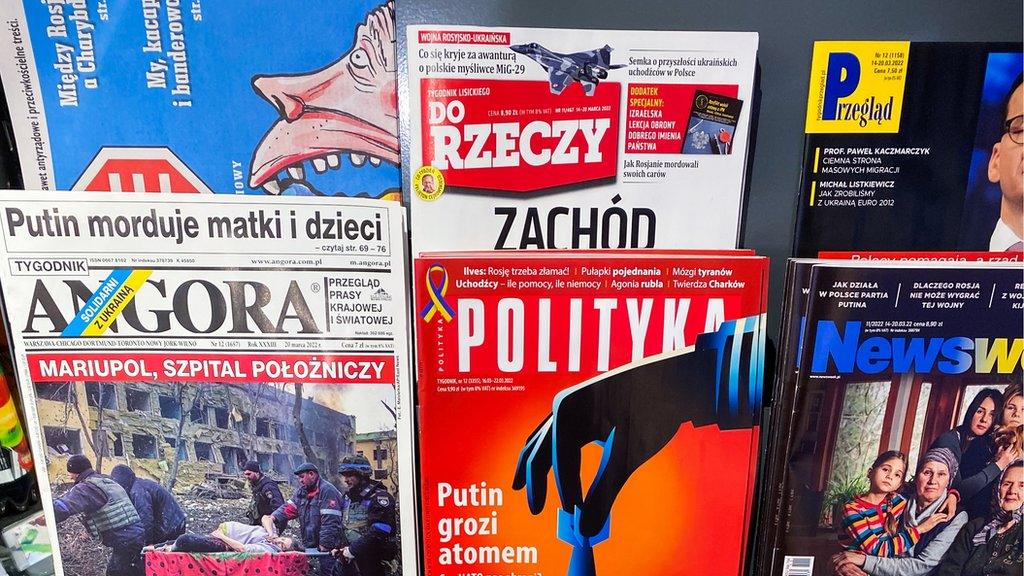
- Published27 October 2015
